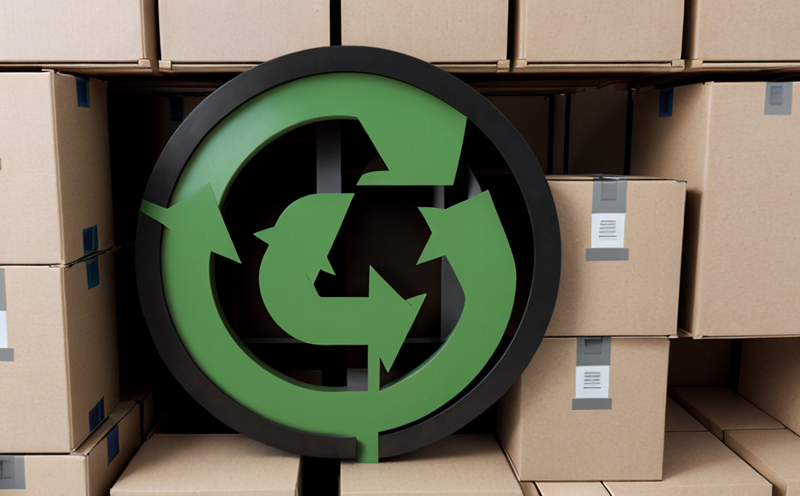CEN/TR 17007 Environmental Management and Sustainability Reporting for Recycling
The CEN/TR 17007 standard provides a framework for environmental management systems (EMS) in the context of recycling operations. This includes the development, implementation, maintenance, and improvement of EMS to ensure compliance with relevant legal requirements and best practices. The standard is designed to help organizations manage their environmental impact more effectively by integrating sustainability into daily operations.
The application of CEN/TR 17007 can be particularly beneficial for companies involved in waste management and recycling processes as it provides a structured approach to managing resources, reducing waste, and promoting the circular economy. This standard is aligned with international standards such as ISO 14001, which focuses on environmental management systems, and ISO 50001, which addresses energy management.
The CEN/TR 17007 framework emphasizes continuous improvement through monitoring and review processes. It encourages the integration of sustainability into business strategies, operational practices, and product lifecycle management. This includes setting clear environmental objectives and targets that are aligned with organizational goals and broader societal expectations.
Organizations adopting CEN/TR 17007 can expect enhanced resource efficiency, reduced waste generation, improved compliance with environmental regulations, and increased transparency in sustainability reporting. The standard also facilitates communication between stakeholders by providing a common language for discussing environmental impacts and opportunities for improvement.
For quality managers, compliance officers, R&D engineers, and procurement professionals, CEN/TR 17007 offers valuable tools to enhance the sustainability of their operations. By implementing this standard, they can ensure that their recycling processes are aligned with best practices in environmental management. This not only supports regulatory compliance but also contributes positively to corporate social responsibility initiatives.
The implementation of CEN/TR 17007 involves several key steps including:
- Conducting an initial environmental assessment
- Developing and implementing an EMS plan
- Monitoring and reviewing the effectiveness of the EMS
- Continuous improvement based on monitoring results
By following these steps, organizations can systematically address environmental challenges associated with waste management and recycling. The standard promotes a proactive approach to sustainability by fostering innovation and encouraging the adoption of sustainable practices across all levels of operation.
The benefits extend beyond mere compliance; they include improved operational efficiency, enhanced reputation among customers and stakeholders, and long-term cost savings through reduced resource consumption. These advantages make CEN/TR 17007 an essential tool for any organization committed to environmental stewardship in the recycling sector.
Why Choose This Test
Selecting a laboratory that offers CEN/TR 17007 compliance testing is crucial for ensuring accurate and reliable sustainability reporting. Our laboratory specializes in providing comprehensive assessments that go beyond basic environmental management; we focus on delivering detailed insights into your organization's performance against the standard.
- We employ certified professionals with extensive experience in waste management, recycling operations, and sustainability metrics
- Our state-of-the-art facilities are equipped to handle a wide range of sample types and sizes
- We use cutting-edge technology and methods recommended by CEN/TR 17007 for accurate measurement and analysis
- Ongoing training ensures our staff remain up-to-date with the latest developments in environmental science and practice
By choosing us, you gain access to expert guidance tailored specifically to your organization's needs. Our team works closely with clients throughout the testing process, offering support from initial consultation through final report delivery. This collaborative approach ensures that our findings are not only accurate but also actionable.
In addition to technical expertise, we pride ourselves on delivering exceptional customer service. From quick turnaround times for results to personalized recommendations based on your specific situation, we aim to exceed expectations at every step of the way. Whether you're looking to enhance compliance or simply improve overall sustainability performance, our team is here to help.
Our commitment to excellence extends beyond just technical capabilities; it includes a dedication to fostering trust and long-term relationships with all stakeholders. We understand that sustainable practices are not just about meeting regulatory requirements—they represent an opportunity for genuine innovation and growth within your organization. By partnering with us, you can be confident in knowing that you're investing in both immediate benefits and future success.
Environmental and Sustainability Contributions
The adoption of CEN/TR 17007 contributes significantly to the broader goals of sustainability and the circular economy. By implementing this standard, organizations can make substantial contributions towards reducing waste, conserving resources, and minimizing environmental impacts.
In practical terms, adhering to CEN/TR 17007 leads to several tangible outcomes:
- Reduction in greenhouse gas emissions
- Decreased use of non-renewable resources
- Enhanced resource efficiency and recycling rates
- Better waste management practices leading to reduced landfill contributions
- Increased transparency in sustainability reporting, enhancing public trust and stakeholder engagement
The positive impact extends beyond individual organizations; it contributes to global efforts towards sustainable development. By embracing CEN/TR 17007, businesses play a crucial role in advancing the circular economy—a model that aims to eliminate waste and the continual use of virgin resources.
Through continuous improvement processes outlined by the standard, companies can drive innovation within their operations, leading to more efficient resource use and ultimately contributing to a healthier planet. The circular economy fosters economic growth while minimizing environmental strain, making CEN/TR 17007 an integral part of this transformative approach.
For those looking to demonstrate leadership in sustainability, aligning with CEN/TR 17007 offers clear advantages. It provides a robust foundation for achieving and maintaining sustainable practices, ensuring that your organization remains at the forefront of responsible environmental stewardship.





